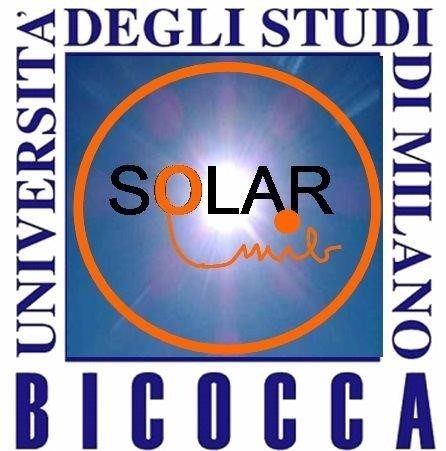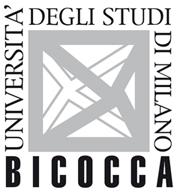Our group is involved with the design, synthesis, and characterization of organic materials as sensitizers for hydrogen production by heterogeneous photocatalysis. TiO2 nanoparticles are partially covered with a catalyst for hydrogen evolution, commonly Pt nanoparticles, and then sensitized with a proper dye as antenna system to harvest as much solar irradiation as possible. These nanoparticles are suspended in an aqueous buffer electrolyte together with a Sacrificial Electron Donor (SED) and then put in a reactor and left under irradiation. Photons captured by the dye excite an electron of the of the antenna system that is transferred to the semiconductor while the hole on the sensitizer irreversibly oxidize the SED. Electrons collected by Pt nanoparticles, reduce protons to hydrogen. Our work, in collaboration with University of Trieste, a leading national public partner on this topic, focuses on the synthesis of new materials photosensitizers, with tailored properties to better match the interfacial requirements of processes occurring in water and optimized performances thanks to the use of a fruitful combination of electron-rich and electron-poor (hetero)aromatic building units, a variety of structural design, and different symmetries and geometries. The main advantage of this technique lies in the possibility of using different compounds as SED. The research is focusing on the use or emerging pollutant, that cannot be easily removed with traditional methods, such as organic compounds or drugs present in real wastewater.
At MIB-SOLAR labs, it is possible to set up photocatalysis experiments, with a water-cooled photoreactor (that can be irradiated by the ABA solar simulator or different properly filtered light sources) and a gas-chromatograph with an auto-injecting valve to automatically perform gas analysis of the photoproduced hydrogen as a function of time. A HPLC-HRMS also allows identification of side product coming from the oxidation of the SED.
Research team: Prof. Alessandro Abbotto (Full Professor), Dr. Norberto Manfredi (Associate Professor), Ottavia Bettucci (Assistant Professor), Giorgia Salerno (PhD Student).
- Salerno, G., Cecconi, B., Bettucci, O., Monai, M., Zani, L., Franchi, D., Calamante, M., Mordini, A., Montini, T., Fornasiero, P., Manfredi, N., Abbotto, A., “Enhanced Long-Term Stability of a Photosensitizer with a Hydroxamic Acid Anchor in Dye-Sensitized Photocatalytic Hydrogen Generation” Eur. J. Org. Chem. 2023, 26, e202300924
- Manfredi, N.; Decavoli, C.; Boldrini, C.L.; Dolla, T.H.; Faroldi, F.; Sansone, F.; Montini, T.; Baldini, L.; Fornasiero, P.; Abbotto, A. “Multibranched Calix[4]arene‐Based Sensitizers for Efficient Photocatalytic Hydrogen Production” Eur. J. Org. Chem. 2021, 2021, 284-288.
- Boldrini, C.L.; Manfredi, N.; Montini, T.; Baldini, L.; Abbotto, A.; Fornasiero, P. “Calix[4]arene‐based molecular photosensitizers for sustainable hydrogen production and other solar applications“. Curr. Opin. Green Sustain. Chem. 2021, 100534.
- Manfredi, N.; Monai, M.; Montini, T.; Peri, F.; De Angelis, F.; Fornasiero, P.; Abbotto, A., Dye-Sensitized Photocatalytic Hydrogen Generation: Efficiency Enhancement by Organic Photosensitizer–Coadsorbent Intermolecular Interaction. ACS Energy Lett. 2018, 3 (1), 85-91.
- Manfredi, N.; Monai, M.; Montini, T.; Salamone, M.; Ruffo, R.; Fornasiero, P.; Abbotto, A.
“Enhanced photocatalytic hydrogen generation using carbazole-based sensitizers” Sustainable Energy & Fuels, 2017, 1, 694 – 698 - Manfredi, N.; Cecconi, B.; Calabrese, V.; Minotti, A.; Peri, F.; Ruffo, R.; Monai, M.; Romero-Ocana, I.; Montini, T.; Fornasiero, P.; Abbotto, A., Dye-sensitized photocatalytic hydrogen production: distinct activity in a glucose derivative of a phenothiazine dye. Chem. Commun. 2016, 52 (43), 6977-6980.

 '
'